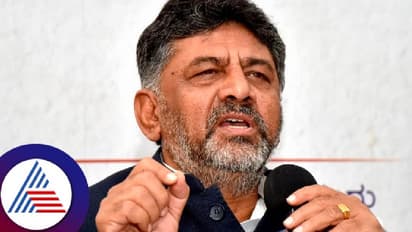Congress Foundation Day: Reflecting on a legacy of democracy and progress

Synopsis
Deputy Chief Minister and Karnataka Pradesh Congress Committee (KPCC) President D.K. Shivakumar highlighted the pivotal role Congress has played since its inception in 1885, emphasising its commitment to democracy, social equality, and the well-being of the nation. The journey of the Congress began in Mumbai on December 28, 1885, with a focus on freedom struggles and improving the quality of life for the people.
Over the years, the party has weathered challenges, gained the trust of the people, and played a crucial role in shaping India's political landscape. From the era of Pandit Jawaharlal Nehru, where India gained international fame, to the leadership of Indira Gandhi, the Congress has left an indelible mark on the nation's history, as noted by D.K Shivakumar.
As D.K. Shivakumar noted, leaders like Rajiv Gandhi have instilled hope that is echoed in the present through Rahul Gandhi's "Bharat Jodo" campaign. The party's ability to unite people's minds is a testament to its political acumen, with leaders like Sonia Gandhi, Rahul Gandhi, Mallikarjuna Kharge, and others working to foster unity among the citizens.
Critics often question the Congress's contributions during its years in power, but it's essential to acknowledge the positive impact of measures taken, particularly during 2004–2014. The government, led by then-Prime Minister Manmohan Singh, implemented crucial initiatives such as the Employment Guarantee Scheme, which significantly reduced the poverty rate and prevented millions from falling into destitution. The Food Security Act addressed hunger, while the Special Economic Zones Act boosted export volumes, showcasing the party's commitment to economic growth. D.K. Shivakumar, in his reflections, added, "The Congress has a rich history of addressing the needs of the people and contributing to the nation's progress.
It's crucial to recognise the positive impact of our initiatives, such as the Employment Guarantee Scheme, which played a pivotal role in reducing poverty." The Congress introduced transformative policies like the Right to Information (RTI) Act, the RTE education system, and the Aadhaar identity system, which had a significant impact. These initiatives brought transparency to governance, empowered children with the right to education, and established a unique identification system widely adopted to this day.
In the face of new challenges, the Congress stands firm in its commitment to protect the constitution and uphold democratic principles, secularism, equality, and sovereignty. The party recognises its responsibility to address contemporary issues, championing the cause of the poor, Dalits, backward classes, and minority communities.
As Dr. B.R. Ambedkar once said, "Democracy is not just a form of government. It is basically the feeling of respect that everyone in society shows to each other." D.K. Shivakumar reiterated this sentiment, stating, "The Congress, with its enduring legacy, has undertaken the responsibility of building and safeguarding such a democratic system."
Stay updated with the Breaking News Today and Latest News from across India and around the world. Get real-time updates, in-depth analysis, and comprehensive coverage of India News, World News, Indian Defence News, Kerala News, and Karnataka News. From politics to current affairs, follow every major story as it unfolds. Download the Asianet News Official App from the Android Play Store and iPhone App Store for accurate and timely news updates anytime, anywhere.